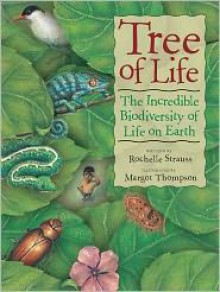Global warming is the heating up of the planet, with average temperatures rising due to the greenhouse effect of heat-absorbing gases in the atmosphere.

Global warming is the heating up of the planet, with average temperatures rising due to the greenhouse effect of heat-absorbing gases in the atmosphere.
 This book clearly deals with the 'so what' question. There are multiple human and global impacts of biodiversity that make this a relevant book. The book shifts regularly in and out of basic science fact presentation and into social activism. In the end the book gives a dozen examples of specific people and projects that are activists in local, doable ways.
This book clearly deals with the 'so what' question. There are multiple human and global impacts of biodiversity that make this a relevant book. The book shifts regularly in and out of basic science fact presentation and into social activism. In the end the book gives a dozen examples of specific people and projects that are activists in local, doable ways.  Let's be clear, this is not a sit down and read cover-to-cover type of picture book. It really is quite dense with information and, if not broken up a bit, it could be super overwhelming. Then you would really be missing all that this wonderful book has to offer. Basically, this serves as an introduction to biodiversity and taxonomy/classification for children (or whoever!). We used it as a springboard to a deeper study of the animal kingdom and, for that purpose, it was just about perfect. I think the information is laid out in a very clear and concise manner. We paired it with [b:One Million Things: Animal Life|5135806|One Million Things Animal Life (One Million Things)|Richard Walker|http://d202m5krfqbpi5.cloudfront.net/books/1347713220s/5135806.jpg|5202690] and found the two books to complement each other nicely.
Let's be clear, this is not a sit down and read cover-to-cover type of picture book. It really is quite dense with information and, if not broken up a bit, it could be super overwhelming. Then you would really be missing all that this wonderful book has to offer. Basically, this serves as an introduction to biodiversity and taxonomy/classification for children (or whoever!). We used it as a springboard to a deeper study of the animal kingdom and, for that purpose, it was just about perfect. I think the information is laid out in a very clear and concise manner. We paired it with [b:One Million Things: Animal Life|5135806|One Million Things Animal Life (One Million Things)|Richard Walker|http://d202m5krfqbpi5.cloudfront.net/books/1347713220s/5135806.jpg|5202690] and found the two books to complement each other nicely.